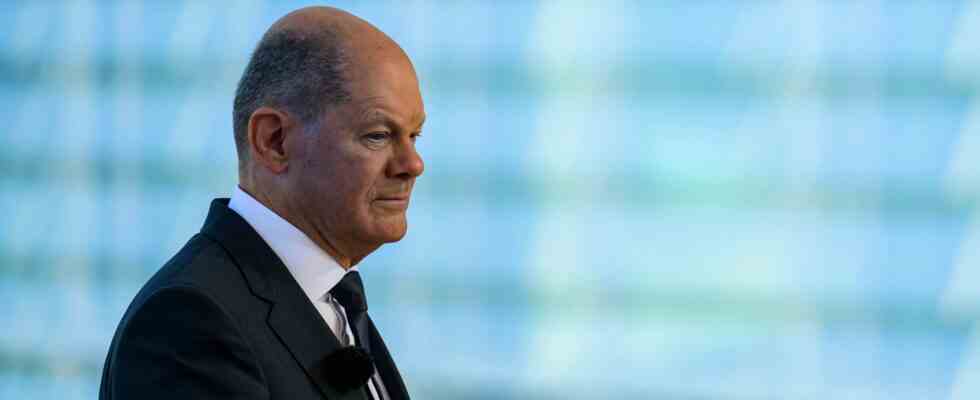Status: 09/27/2022 3:07 p.m
The federal and state governments have been arguing for weeks about how the new relief package should be financed. The country heads are now coming together without Chancellor Scholz – who has apologized for his corona infection.
Chancellor Olaf Scholz has had the federal and state consultations on the third relief package scheduled for this Wednesday postponed, referring to his corona infection. The chairman of the conference of prime ministers, North Rhine-Westphalia’s head of government Hendrik Wüst, wrote on Twitter: “The Chancellor asked me to postpone the federal-state consultations on the relief package because he cannot attend personally due to his isolation.”
The consultations with the chancellor would be postponed to October 4th, the CDU politician continued. The Federal Press Office confirmed that. This date – next Tuesday afternoon – had been agreed “in agreement with the coordinating countries” “to enable consultation in person”. The federal states had previously accused the traffic light coalition of having decided on a billion-dollar state contribution to the costs without consultation.
The originally planned special meeting of the country heads this week, Wednesday, will take place as planned, Wüst tweeted. It’s about working “on solutions to help our country get through the fall and winter in the energy crisis.”
“There’s a lot to talk about”
Scholz told the “Neue Osnabrücker Zeitung” that both sides agreed “that it is better to meet in person and not just virtually”. Because, added Scholz – who has been in isolation since Monday because of his corona infection – added: “After all, there is a lot to talk about.”
The deliberations deal with the question of how the costs for the relief package of at least 65 billion euros from the traffic light coalition in the fight against high energy prices should be divided between the federal and state governments. Lower Saxony’s Prime Minister Stephan Weil had announced that he would not expect “easy talks”.
The federal government wanted to lower expectations
The federal government had already tried to reduce expectations of the meeting in advance. Scholz had only spoken of an “intermediate step” because the differences between the federal and state governments were too great. In addition, it should be about the successor to the 9-euro ticket in local transport and demands from the federal states for a greater share of the federal government in the costs of taking in refugees.
It is “completely normal for the federal and state governments to discuss financial issues with each other and how the costs are divided,” said Scholz, referring to the demands from several federal states that the federal government should take on a higher share of the financing of the relief package. “We are united by the common goal of providing relief very quickly so that our country can get through this difficult time well.”
countries had increased pressure
On the other hand, the country leaders had increased the pressure again before the meeting with the Chancellor planned for this Wednesday. In uncertain times, people needed “security as soon as possible,” said Bremen’s Prime Minister Andreas Bovenschulte of the “Welt”. “The energy price cap must come now,” said Bovenschulte. There is already a threat of “deep cuts in our economy and jobs are at risk due to the reluctance to buy and invest,” the Bremen head of government warned. Thuringia’s Prime Minister Bodo Ramelow had also asked the federal government to decide on an energy price cap for Germany.
Hamburg’s Mayor Peter Tschentscher had asked his colleagues to “support the measures of the third relief package in the Bundesrat”. However, an agreement on the distribution of costs is the prerequisite for this. The renewed suspension of the debt brake in the constitution is a conceivable step, according to Tschentscher. “Given the situation, that would certainly be justifiable.” Many countries are “overwhelmed because there are additional burdens from taking in refugees or a follow-up regulation for the 9-euro ticket,” he said.

